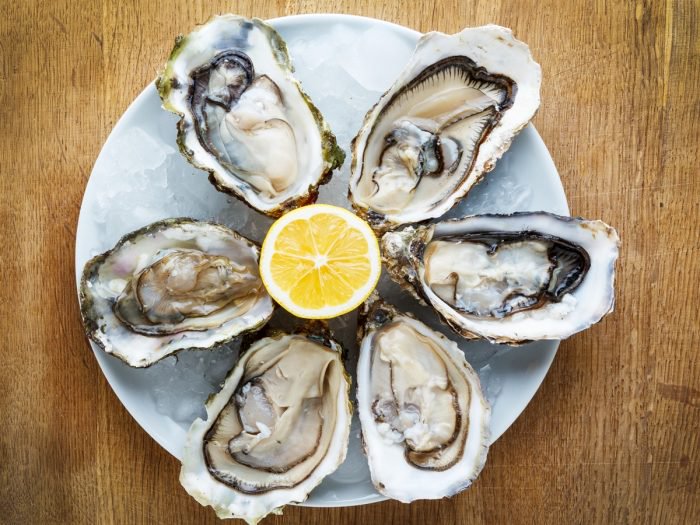The oyster gut microbiome and you.
Science is about humanity’s search for the answers to fundamental questions ranging from ‘Why is the speed of light the same for all observers’ to ‘Can I eat that?’.
Two years into my graduate school career I now feel secure in knowing that I helped to contribute my little part to our collective understanding of things eating other things, as well as why you should not think too hard when eating oysters.
My part of all this is a just-published paper with the snappy title “High turnover of faecal microbiome from algal feedstock experimental manipulations in the Pacific oyster (Crassostrea gigas)“. If you don’t feel like reading the whole thing here’s the tldr;
- If you change the diet of an oyster its gut microbiome will change quickly, on the time scale of a week or so.
- Different oysters will respond to changes in diet in very similar ways, at least with what is in their gut microbiome.
- This is of relevance as it implies that if any probiotics are developed for improving oyster crops in aquaculture then they can be quickly an uniformly incorporated into multiple oyster gut microbiomes.
Actually, I would recommend cooking oysters.


After the intervention, does the microbiome return to the original balance? I recall reading that the human microbiome rebounds after you stop messing with it, making enduring changes to our microbiomes difficult.
There’s no original balance which were observed in this study. What we found is that the gut microbiome is highly plastic. Given that an oyster is filtering multiple liters of water per hour, which would be the equivalent of a human being passing a swimming pool through their digestive track on a daily basis, it is reasonable to assume that there’s a very quick turnaround time for changes in their gut microbiomes.